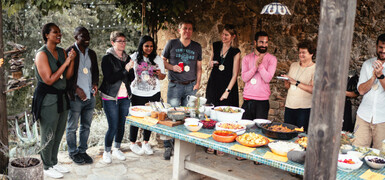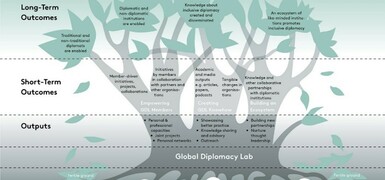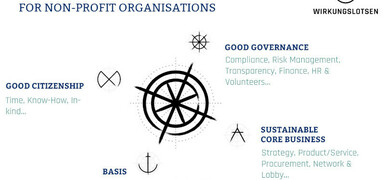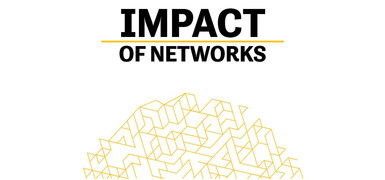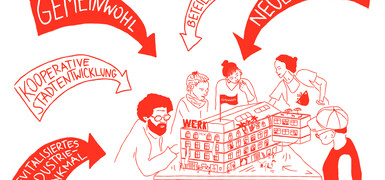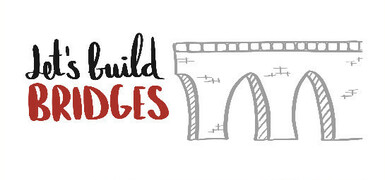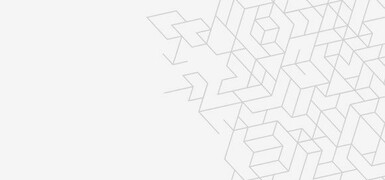
Krzyżowa Foundation: A peer-learning workshop to harness the ‘wisdom of many’
How can we use the decentralized knowledge of a group to solve a specific challenge?
For centuries, the proverbial ‘wisdom of many’ has been honored as a valuable way to enable better decision-making. We believe that this adage also holds true in our present times and that carefully curated groups can provide paths to solutions for even highly specific challenges. In 2019, iac Berlin co-organized a peer-learning workshop with the Krzyżowa Foundation for Mutual Understanding in Europe to reform their internal structures, a process that was successfully finalized in 2021.

Thirty years after its establishment, the Krzyżowa Foundation had defined its offerings and achieved a great deal. However, it faced many challenges in adapting to a rapidly changing world. The foundation’s internal structures were too complicated, communication and coordination were cumbersome, and staff sometimes felt neglected.
Too much energy was lost in internal processes. We devoted too little attention to the question: What do we want to achieve in society with our work? At the same time, we were always united by the conviction that our work for dialogue, the development of a democratic culture, and the coalescing of Europe is more important than ever.
Ole Jantschek has been the Deputy Chairman of the Board of Trustees of the Krzyżowa Foundation since 2017 and also served as the chairman of the German-based Kreisau-Initiative e.V. from 2011-2020. Together with iac Berlin, he organized a peer-learning workshop in 2019 with a curated group of experts in order to tap into the decentralized ‘wisdom of many' for his foundation's change process.
At a glance:
Challenge: Modernizing internal structures, processes, and roles
Approach: Peer-learning workshop
Results: Successful committee reform
Long-term impact: Start of a long-term change process
Wanted: Peer consultation
In order to gain an outside perspective on its change process, the foundation sought an organization that was familiar with the world of NGOs and foundations, fit with the Krzyżowa Foundation’s guiding principles, and could draw on an appropriate network of external experts.
It was important for us to build on an atmosphere of trust and understanding. In this context, iac Berlin seemed to be an ideal companion.
Through existing personal contacts with the Robert Bosch Stiftung, the Bosch Alumni Network, and iac Berlin, a peer-learning workshop was co-organized in 2019. The iac Berlin took over the moderation and facilitation, and members of the Bosch Alumni Network participated as experts.
Case Clinics: Method and process
By 2019, the Bosch Alumni Network had already brought together more than 5,000 former and current grantees, fellows, and employees of the Robert Bosch Stiftung and its partners, making it an ideal cross-sector pool of expertise. iac Berlin assembled a group of 10 members of the Bosch Alumni Network that included executive directors of NGOs as well as members with experience with volunteer advisory boards and organizational development.
After a casual dinner to lay a foundation of trust, the central challenge was presented in the form of a Case Clinic. This included time to facilitate a deep understanding of the case, followed by collaborative brainstorming of ideas and possible solutions. In their role as “Case Givers,” representatives from the Krzyżowa Foundation selected ideas from this pool of suggestions to further elaborate potential solution paths with the group. At the end of these iterations, they were able to develop an implementation strategy.
Through the Case Clinic and input from the convened experts and participants, the group was able to address key concerns and feed the outcomes back into the foundation.
In this group, we were able to identify our own blind spots. We had previously looked primarily at the structures of the boards, but then realized in the workshop that a central concern must be to strengthen the board. That was an important insight.
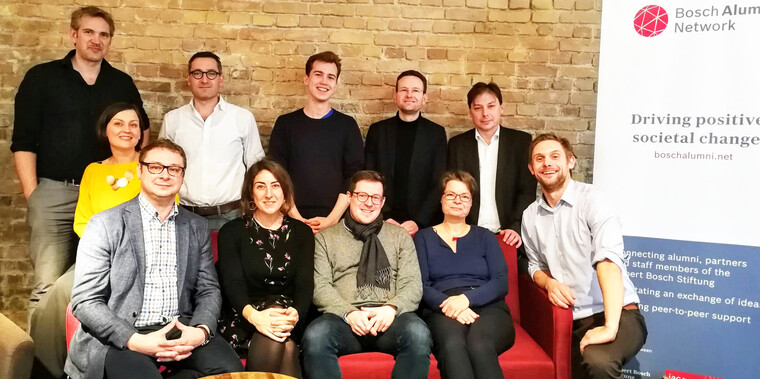
Case Clinics are a tried-and-tested method that can be applied to a wide variety of issues and holds the potential to generate diverse, creative ideas, provide focus to find the most promising approaches, and transform recommendations into concrete action.
Outcomes for the foundation
Results of the reform process:
- Two committees were integrated into the Foundation’s Board and the governance structure was streamlined.
- The interaction and roles of the remaining bodies (Executive Board, Supervisory Board, Foundation Board) were reformulated for clarity.
- The Executive Board was given a central role in the organizational chart—a change from the previous structure.
- For the first time, employees are represented by their own representatives on the Foundation Board.
- The shared understanding of the foundation's current mission has been strengthened and translated into contemporary language.
The open and trusting exchange was central and subsequently brought together, among others, Prof. Waldemar Czachur and Ole Jantschek as the Presidium of the Foundation Board, Dr. Annemarie Franke and Dr. Benedikt Schneiders for the Supervisory Board, Joanna Szaflik-Hohmann from the Advisory Board of the International Youth Meeting Center (IYMC), the Executive Director Dr. Robert Żurek and the Director of the IYMC, Anna Kudarewska.
A starting point for long-term change
The change process was carried out and completed over the course of two years. With its new strategic focus and more nuanced understanding of internal roles and interests, the foundation was able to better process input from staff and volunteers, more precisely articulate challenges, and understand individual perspectives and reactions in a new light.
In this process, iac Berlin played a crucial role, endowed with a great deal of trust: trust in expertise, but also in inviting the right people to the peer-learning workshop. With iac Berlin, a credible and neutral authority was also there in a moderating role.
The reform is a key outcome for the Krzyżowa Foundation, while also serving as the starting point for a long-term process to further improve the impact orientation of its work. The inputs gained from the workshop will continue to be an essential part of this process in the years to come.
The Krzyżowa Foundation for Mutual Understanding in Europe is a Polish non-profit, non-governmental organization. It was founded in 1989-90 by individuals from Poland, Germany and other countries. In the spirit of the Kreisau Circle, the foundation provides spaces to develop European relations on a basis of mutual respect, dialogue, and a willingness to reconcile.
If this method sounds interesting for your organization as well, we'll be happy to start a conversation. Please get in touch with:
Darius Polok
Managing Director
darius.pook@iac-berlin.org
